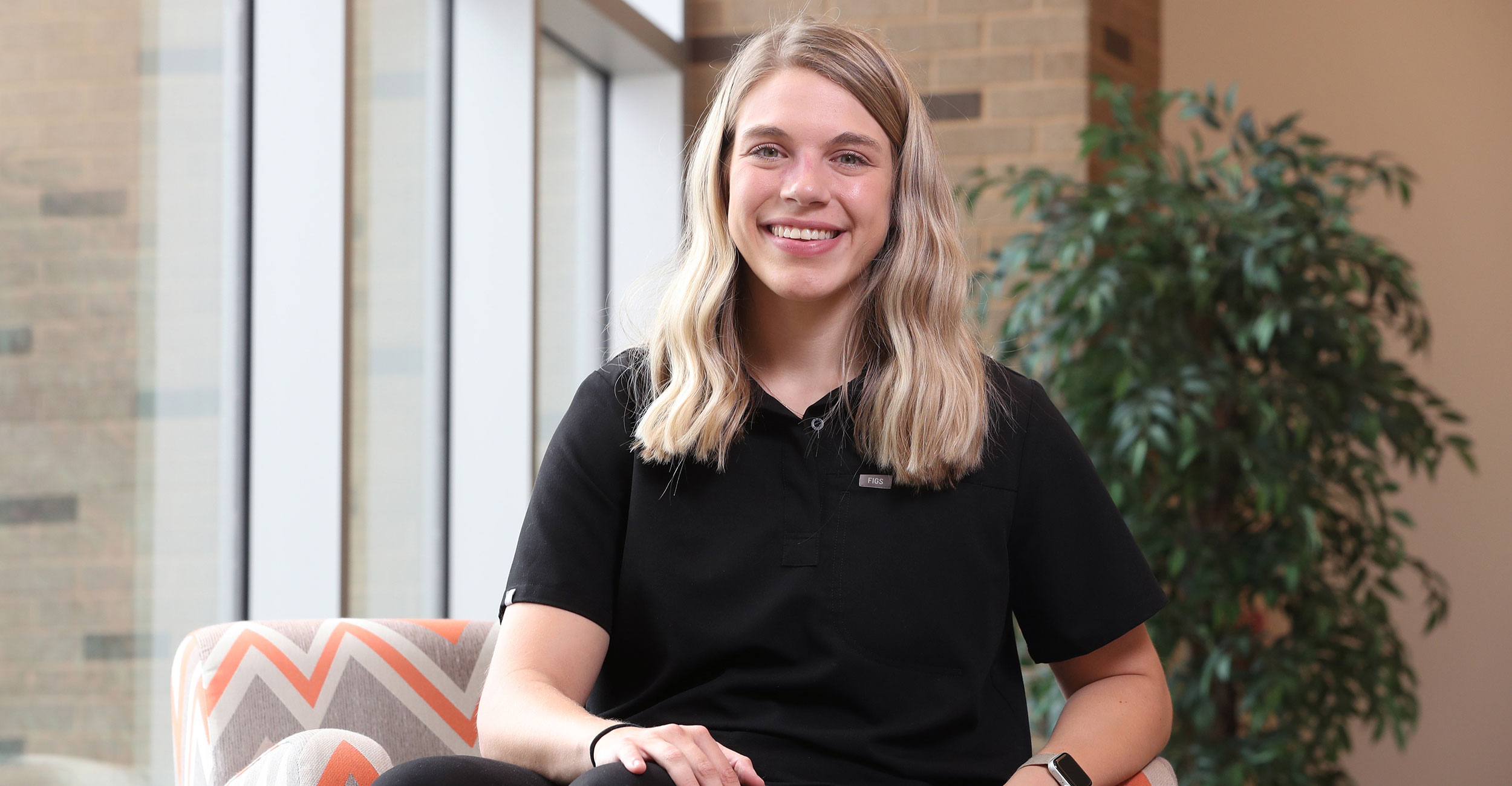
Schweitzer Fellow Abbey Renner aims to educate about diabetes care
Tuesday, November 2, 2021
Media Contact: Sara Plummer | Communications Coordinator | 918-561-1282 | sara.plummer@okstate.edu
A few years ago, someone very close to medical student Abbey Renner was diagnosed with diabetes.
“After their diagnosis, I watched them turn their lifestyle around and take their health into their own hands,” said Renner, a second-year medical student at Oklahoma State University College of Osteopathic Medicine. “I could tell they were proud of their hard work and I was inspired and motivated to live a healthier lifestyle and set an example for others just as they did for me.”
She became interested in the Albert Schweitzer Fellowship program after learning about the organization’s mission and that it aligned with her own values of giving back to the community through service and leadership.
“I was confident that applying my own personal skills and knowledge within the established structure of the Schweitzer program would give me the tools I needed to be successful in serving the underserved,” she said.
Renner and fellow OSU-CHS students Sydney Blevins, Mackenzie Moody, Stephanie Myers and Kelsey Snider are among the 13 Tulsa-area graduate students selected for the Tulsa Chapter’s 2021-22 fellowship program. Tulsa is one of 13 chapters in the United States with Albert Schweitzer Fellowship programs that aim to develop graduates who will enter the workforce with the commitment and leadership skills needed to address unmet health needs for underserved populations.
Renner’s year-long project aims to address the high rates of diabetes among adults in the Tulsa community by launching and running recurring diabetes education classes at Xavier Medical Clinic, a free clinic for uninsured patients that serves a largely Spanish-speaking population with a high prevalence of diabetes.
“The education classes will focus on topics regarding physical activity, nutrition and medication adherence. Ultimately, the goal of this project is to educate participants about diabetes and how it impacts their lives in order to empower them to manage their diabetes and improve their health and quality of life,” she said.
“Although diabetes is common and costly, with better education and management, people with diabetes can live longer and healthier lives with reduced risks of complications.”
“The uninsured patient population at Xavier Medical Clinic has significant barriers to access to care. Targeting the cultural and language barriers that prevent adequate education of diabetes could significantly improve the quality of life of these patients and could help control the escalating health care costs of diabetes,” Renner said.
Her diabetes education classes are currently underway, and Renner said she’s excited about the progress that’s been made so far and about the further developments and improvements to the project.
“I am excited to make some changes as I learned a lot from my first group of participants. Specifically, I have been able to learn and appreciate the effect social determinants have on health care education and in communicating with those from different cultural backgrounds than my own,” she said. “The progress I have been able to make in developing my project has stirred fresh enthusiasm within me and I’m eager to see what else the Schweitzer Fellowship and my project bring throughout the rest of the year.”
